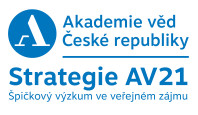plakát
The talk will seek to show that not only the word but the very concept 'ethics/the ethical' (no distinction is made between ethics and morality) is a philosophical construct: the product of philosophical reflection about good human life. The historical character of the word, indeed the fact that it began as terminus technicus, leads to the question to what extent the concerns which led philosophers to coin the term entered, and remain integral to, the concept.
If, as I'll argue, they did, then we need to see how far ethics, understood by us as the expression of the most important (the unconditional, the fundamental, etc.) is in fact structured by certain specific concerns – at the expense of others. I'll argue that the philosophical project of 'good life', expressed in the concept of the ethical, comes with a radical reshaping of human values: that it focuses on the practical modelled on the will/the agent (both practical and will are philosophical constructs invented along the way): on what is in our power. This is at the expense of values not capturable through the practical. The loss of values which are not given to action does not only tilt the balance between the active and the passive, but distorts our understanding of action itself – favouring agent-action over response action – and along with that the role of the self and 'reality' for good life.






